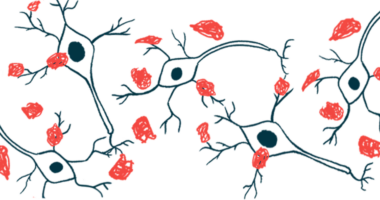Texas sets example with brain disease research investment: MJFF
Voters approve $3B over 10 years to support research institute

- Texas voters approved a $3 billion investment for brain disease research over 10 years.
- The funding supports the Dementia Prevention and Research Institute of Texas (DPRIT).
- DPRIT aims to advance understanding, treatment, and clinical trials for brain diseases.
Texas voters a a $3 billion state investment to support research into brain diseases such as Parkinson’s disease, a measure the Michael J. Fox Foundation for Parkinson’s Research (MJFF) called “a decisive step toward transforming the future of brain health and establishing itself as a model for other states and the federal government.”
The funding — $3 billion over the next decade — will support the Dementia Prevention and Research Institute of Texas (DPRIT), a statewide initiative established earlier this year to advance the understanding and treatment of brain diseases. DPRIT also aims to expand access to clinical trials and bolster state staffing for brain health.
“Texas is setting a national example for public investment in science to help deliver the breakthroughs people living with Parkinson’s urgently deserve,” Dan Feehan, chief policy and government affairs officer at MJFF, said in a foundation press release. “Other states and the federal government should look to Texas as a model for bold, forward-looking investment in public health.”
MJFF said it and Texas-based Parkinson’s advocates and organizations, including the Houston Area Parkinson Society and the Dallas Area Parkinson Society, worked to ensure Parkinson’s disease was included in research projects eligible for DPRIT funding. The institute as initially envisioned was limited in scope to dementia, the loss of memory, language, problem-solving, and other cognitive abilities that interfere with daily life.
“There is so much power in the voices of the Parkinson’s community — they are the experts,” Julia Pitcher, director of state government relations at MJFF, said in a MJFF news story. “The courage and candor to talk about navigating life with Parkinson’s reminds us that behind every policy win, every research breakthrough, there are people and families counting on us.”
The power of advocacy
“As someone who lives with Parkinson’s and cares for loved ones who also face this disease, I’ve seen how powerful it is when our community comes together to push for change,” said María L. De León, MD, an East Texas resident, movement disorder specialist, and member of MJFF’s Patient Council.
The amendment’s passage “proves that collective advocacy can bring hope, progress and the promise of a better future for families like mine at home in Texas and around the world,” De León said.
Texas has a similar initiative aimed at preventing and fighting cancer. The Cancer Prevention & Research Institute of Texas has conducted about 375 clinical studies, brought 340 cancer researchers to Texas, and attracted additional funding of $11.6 billion since voters approved its creation in 2007, according to the state.







